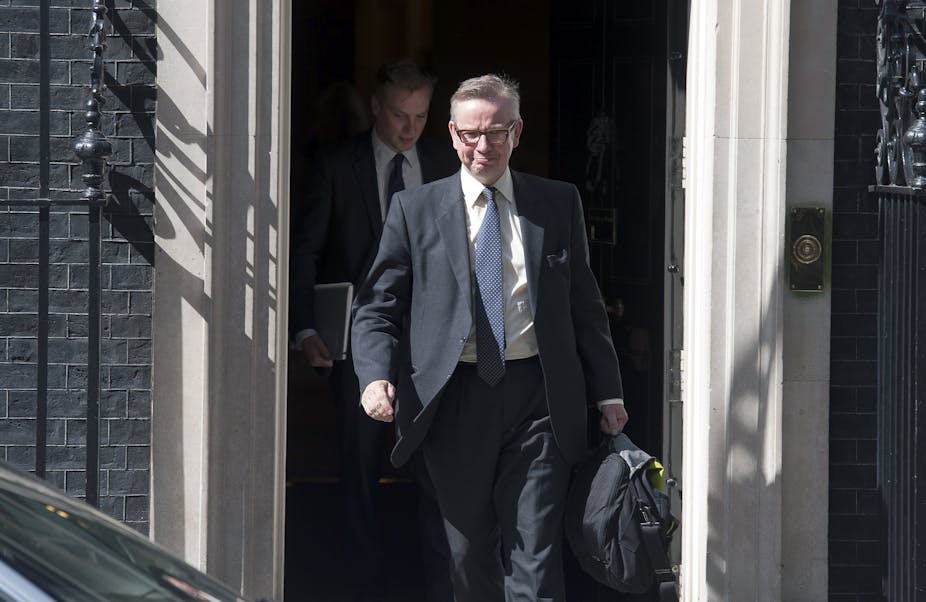David Cameron’s cabinet reshuffle has been substantial. Nowhere more so than in education, where both the secretary of state for education, Michael Gove, and the minister responsible for universities and science, David Willetts, have been replaced. Two newcomers are now in charge of young people’s futures – Nicky Morgan has replaced Gove at the department for education and Greg Clark takes on the university portfolio.
Willetts’s removal could have been anticipated but Gove’s demotion (for that is what it is) to chief whip took many by surprise and arguably provided the biggest headline of the whole reshuffle. The changes are significant – not least because both ministers have been in post since the coalition government came to power in 2010. By modern ministerial standards, they have had considerable time to stamp their mark on their respective areas of the education system.
Both men exemplified the coalition government’s commitment to radically restructure education in ways that repudiate traditional public service and welfare state values. Instead, they sought to reconfigure schools and universities as “business-like” organisations operating in market-driven environments. As such they have illustrated one of the great paradoxes of the current government – that a coalition administration based on centre party support from the Liberal Democrats has presided over the most radical, and right wing, restructuring of welfare services since the welfare state emerged from post-war reconstruction.
Academies – Gove’s biggest legacy
Gove’s time in office has seen change on an extraordinary scale, with almost no aspect of the school system left untouched, including wide-reaching curriculum and assessment reforms.
But there can be little doubt that the most significant feature of the Gove era has been a relentless drive to wrest schools away from local authority control and to establish a school system based on “state-funded independent” schools in the form of academies and free schools. This breaking up of the school system marks a significant staging post in the move towards a privatised, for-profit model of provision supported by public money, and topped up with private contributions.
For some time, it has looked as though Gove was intent on achieving a single-term revolution in which reform (in the form of academisation) was pressed so far, and so fast, that it would not be considered possible for a future government to reverse it. Only time will tell if he has been successful.

Willetts cemented the market
For universities, Willetts has proven to be a less controversial figure than his counterpart in the schools sector. But his term in office will be similarly characterised by the drive to turn public services into commercial organisations, and to accelerate the trend to a more aggressive market-based higher education system.
In their highly regarded 1999 book Academic Capitalism: Politics, Policies and the Entrepreneurial University Sheila Slaughter and Larry Leslie argued that England’s universities represented the most developed examples of the commercially driven higher education institution. This process has accelerated many times over during the period of the current government.
The most important example of this was the introduction of up to £9,000 fees for students. But the changes must also be seen as part of a much wider re-casting of the relationship between students and academics, with students encouraged to behave as demanding consumers in an exchange relationship.
Feeding the economy
The English education system, in schools, further education colleges and universities has never been so subservient to the needs of the wider economy than it is now. The global economy is becoming faster, greedier and more unequal – and it is increasingly the role of educational institutions to prepare their pupils and students to take their place in this world.
In order to prepare young people for the market then it has become increasingly important for education institutions to mimic the market. Students learn quickly that they must learn to sink or swim. As one of Gove’s aides once said: “If we don’t work like the Chinese, we will work for the Chinese.”
Such developments have never gone unchallenged, even though there is increasing evidence that a culture of fear in schools and universities is suppressing dissent and resistance. Student fees continue to attract controversy, opposition, and political attention while both the school and university sectors have experienced industrial unrest in the last 12 months. There can be little doubt that Gove’s deteriorating relationship with teachers, including on-going strike action, was a significant contributory factor (amongst several others) in his departure.
Much of the same?

In their new roles, Nicky Morgan and Greg Clark are more than likely to seek to consolidate in the run up to next year’s general election with little dramatic, or controversial, change. Business as usual (in more ways than one) is the most likely scenario. As the new secretary of state for education, Morgan looks like an attempt to place a more media-friendly personality into a politically high-profile role, rather than face a general election campaign with Gove as the public face of the Tories’ schools policy.
But the change of personnel does offer the possibility of changes in direction. Both ministers might do well to start by building bridges with those who work in, and understand, the services they provide. Conservatives need to stop presenting educators as “enemies of promise”, and instead recognise the huge energy for change and development that can be generated when you work with people, and not against them.

